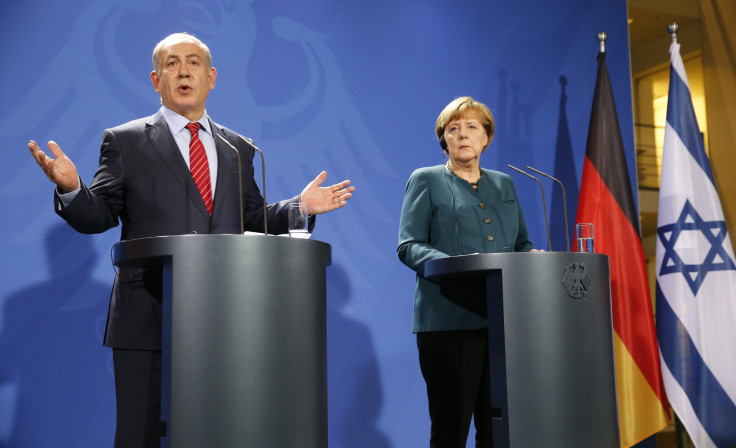Germany’s Relationship With Israel Deteriorating Because Of Netanyahu? Merkel’s Government Says Middle East Policy Hasn’t Changed

A German government official denied Sunday a magazine report which said Berlin might end its unconditional support for Israel due to German Chancellor Angela Merkel's increasing frustration with Israeli Prime Minister Benjamin Netanyahu's policies.
Germany has for decades felt duty bound to support Israel because of the murder of millions Jews by the Nazis during the Holocaust.
But Der Spiegel reported that senior government officials are concerned that Netanyahu is exploiting Germany's friendship for his own political ends and believe Berlin should adopt a more critical stance.
Asked to comment on the report, a government official told Reuters: "The guidelines of German Middle East policy have not changed."
A spokeswoman for Merkel declined to comment and referred to the government's regular news conference on Monday.
Merkel has said repeatedly that the building of Jewish settlements on occupied Palestinian land is counterproductive for the goal of establishing a peaceful and lasting two-state solution in the Middle East.
In its report, Der Spiegel cited concerns that the creation of a fully independent Palestinian state next to a democratic and secure Israel was becoming increasingly unlikely.
"Israel's current policies are not contributing to the country remaining Jewish and democratic," Norbert Roettgen, a member of Merkel's Christian Democratic Union and chair of the Foreign Affairs Committee in the Bundestag, was quoted saying. "We must express this concern more clearly to Israel."
The magazine also quoted a senior official of Merkel's junior coalition partner, the center-left Social Democrats (SPD), as criticizing Netanyahu.
"The perception has been growing in the German government that Netanyahu is instrumentalizing our friendship," Rolf Muetzenich, SPD deputy floor leader in the Bundestag lower house of Parliament, told the magazine.
The United States, Israel's chief ally, and the European Union both consider Israeli settlements on land the Palestinians want for their future state to be illegitimate.
With U.S. efforts to broker a two-state solution in tatters since 2014 and Washington focused on this year's election, France has been lobbying countries to commit to a conference that would get Israelis and Palestinians back to negotiations on ending their conflict.
© Copyright IBTimes 2024. All rights reserved.











